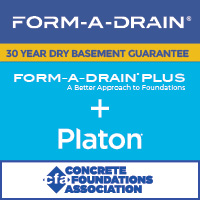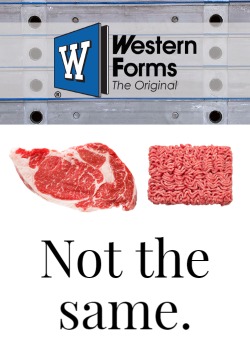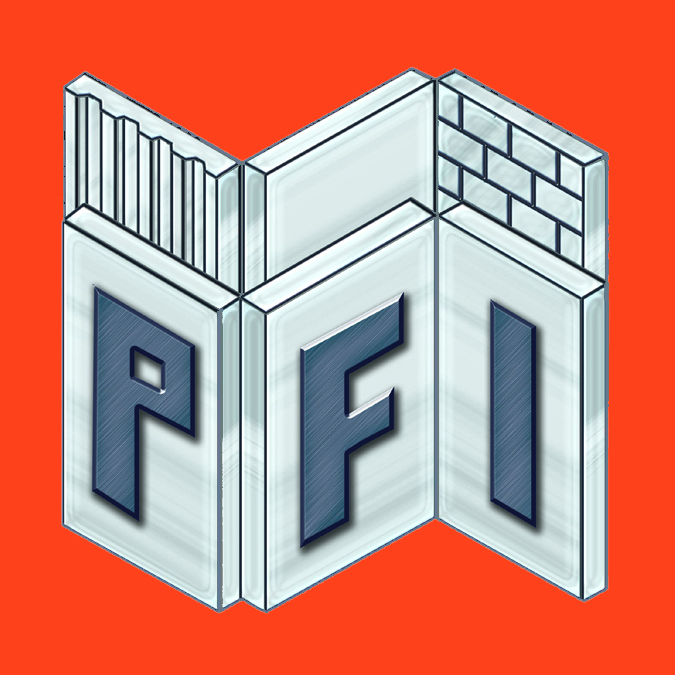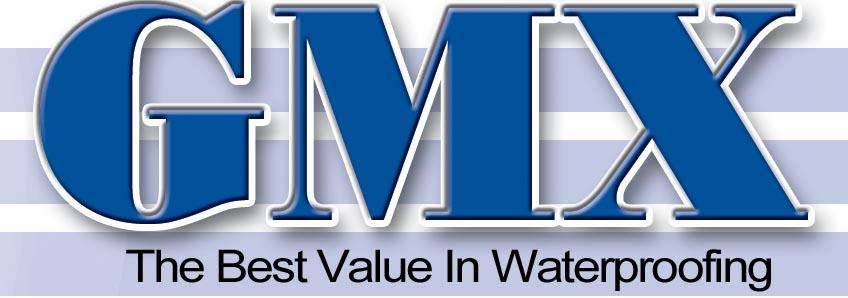CFA Member Benefit: The Employee Manual
One of the most important parts of any business is establishing the boundaries between management and employees that protect both in times of discipline. The policy manual is the tool used to provide prospective employees with the picture of expectations by the employer, as well as maintaining an ongoing and effectively positive relationship.
Employee manuals are often difficult to write and they can become choked with good intent that lingers into weak and challenging implementations. Although it is important for employers to maintain succinct policies, they do need to be as complete and thorough as possible in order to establish both boundary and consequence.
The Concrete Foundations Association has partnered with employer law expert and attorney, David Whitlock, to create an opportunity for its members to improve their structured employee manuals (or establish one where they might be non-existent). This effort is designed to continue the professional improvement of each and every organization in membership with the Association and help the collective structure evolve a more comprehensive approach to managing concrete contracting companies.
In order to facilitate this evolution, Mr. Whitlock and the CFA are prepared to release to each Association member, a basic employee manual.
This manual can be the sound foundation for a company to jump to a higher level of preparation and performance with their staff or it can be an excellent tool to streamline or upgrade their existing workforce policies.
In order to get a picture of how this manual can address important areas of your business and get a feel for the type of guidance to be found in this manual, a sample policy appears at below.
Some companies will find that with this basic manual they are ready to update and improve their skilled approach to managing their workforce expectations. However, others will find it necessary to work directly with a specialist to fine-tune their policies and perhaps take a bit more of a custom approach. For these companies, CFA has also created an opportunity with David Whitlock for a one-to-one relationship at an exceptional rate as a CFA member. Where companies can dump thousands of dollars into a custom employee manual development process, CFA members will have access to one of the industry’s foremost experts at an attractive rate.
For more information on this employee manual kit, contact CFA Headquarters at 866-232-9255, or send email to Executive Director, James Baty at jbaty@cfawalls.org.
SAMPLE POLICY: SOCIAL MEDIA POLICY
We understand that social media can be a fun and rewarding way to share your life and opinions with family, friends and co-workers around the world. You should understand, however, that use of social media also presents certain risks and carries with it certain responsibilities. To assist you in making responsible decisions about your use of social media as it relates to your employment, we have established these guidelines for appropriate use of social media.
This policy applies to all employees who work for [Employer], or any parent, subsidiary, or affiliated entities in the United States.
Guidelines
As part of the rapidly expanding world of electronic communication, social media can mean many things, including any means of posting information or content or communicating on the Internet. This might involve your own or someone else’s web log or blog, online journal or diary, personal or group web site, social networking or affinity web site, web bulletin board or chat room, as well as other new or evolving means of communication. Please note that social media, as defined here, is not limited to means of communication associated or affiliated with [Employer], although these guidelines should also be taken in to consideration as part of your use of any of [Employer]’s means of communication. The more common social media outlets today include Twitter, Facebook, MySpace, LinkedIn, YouTube, etc.
The same principles and guidelines found in [Employer]’s policies and core beliefs should also guide your use of social media. Ultimately, you are solely responsible for what you post or communicate online. Because there are risks and rewards involved, we ask that you think carefully before creating or posting online content. Bear in mind that if your conduct or content adversely affects your job performance or that of other employees, or if what you do or say adversely affects our customers, suppliers, agents, shareholders, or others affiliated with our business or [Employer]’s legitimate business interests, there may be disciplinary consequences.
Please Abide By Our Other Policies
Your use of Social Media may involve other policies of [Employer]. For example, please follow the policies affecting use of computers, telephones, and other means of electronic communication, as well as our Ethics and Harassment Prevention policies. If you post inappropriate content, e.g., discriminatory remarks, harassing statements or images, threats, bullying, or similar inappropriate or unlawful conduct, you may be in violation of other policies and that could result in discipline. Note that this is the case if you post this kind of inappropriate content from home or work.
Please Treat Others With Respect and Dignity
We think it just makes sense for all employees to treat others with respect and dignity, but it is especially important to be fair and courteous to fellow employees, customers, suppliers, guests and visitors, and others connected to our business and our legitimate business interests. To the extent that you have concerns, criticisms, or complaints, we encourage you to raise them openly and honestly by speaking directly to a co-worker, supervisor, Human Resources, or management rather than by posting something online. If you decide to post complaints or criticism online — which is always your right if you choose – please avoid using statements, photographs, video, audio, or other content that reasonably could be viewed as malicious, obscene, threatening, intimidating, or disparaging of customers, co- workers, or others connected to our business interests. Please refrain from posting content that is harassing or bullying. For example, we think that you would agree that such conduct would include content posted intentionally to harm someone else’s reputation or content that might contribute to a hostile work environment on the basis of race, sex, disability, religion, or other protected status.
Always Strive To Be Honest and Accurate
We believe that it is inappropriate to post information or rumors that you know to be false or untrue, especially if they relate to co-workers, customers, and others affiliated with our business interests or our competitors. If you later discover that something you thought was true turns out not to be, we think the best course is to correct it as quickly as possible. This might require you to post a retraction or correction. We believe that doing so is the “right” thing to do rather than leaving false or untrue posts on the internet. Remember that nearly everything posted on the internet is archived somewhere, so even what you delete may later be searched and found.
Here are some specific examples of things you should consider.
- Maintain the confidentiality of [Employer] trade secrets and private or confidential information. Trade secrets may include information regarding our systems, processes, products, pricing formulae, know-how, or technology. For further guidance about what we are trying to protect, please consult our [Confidentiality or Trade Secrets] policy.
- It is often a violation of financial disclosure laws to post or communicate a “tip” or inside information that might influence others to buy or sell shares of stock or other securities.
- If you create a link between your blog, website, or other social media outlet to [Employer]’s website, blog, or social media outlet, you must indicate that you are an employee of [Employer].
- Please do not represent yourself as someone speaking for, or on behalf of, [Employer]. If you post content about [Employer], please remember to state clearly that you are an employee of [Employer] and that your views and/or opinions do not represent those of [Employer], co-workers, customers, or others affiliated with our business interests. If you post a blog or content related to the work you do or the business interests of [Employer], please be certain to make it clear that you are not speaking on behalf of [employer] or its business interests. An easy way to do this is to post a simple disclaimer that says: “The postings here are my own and do not necessarily reflect the view/ opinions of [Employer].”
- Please do not use social media while on work time or using [Employer] equipment, unless doing so is work-related and authorized by management. Of course, you are free to use social media on your own equipment during your time off or breaks.
- Please do not use [Employer]’s email address to register on social media networks, blogs, or other outlets that you use for your personal use or activity.
- Please do not speak to any media or outside contact on behalf of [Employer] unless you are authorized to do so. If you are not so authorized, please direct any inquiries to management.Please note that [Employer] prohibits retaliation against any person who reports a possible violation of our policies. Any employee who threatens, takes adverse action against, or otherwise retaliates against another person who has reported a possible violation of our policies or participated/ cooperated in an investigation of same will be subject to disciplinary action.*****
If you have any questions about [Employer] policies or these Guidelines, please contact your supervisor, Human Resources, or management.ABOUT THE AUTHOR

Lindsey Bloomquist, manager of communications and networking for the Concrete Foundations Association (CFA), works to communicate the available tools and benefits of a CFA membership to the industry, and provide networking opportunities that build professional relationships between contractors and industry leading suppliers and manufacturers. Bloomquist also works closely with industry suppliers and manufacturers to increase exposure within the CFA through advertising, sponsorships, exhibits and networking. Reach Lindsey at lbloomquist@cfawalls.org.
“The professional relationships that are established are vital to the success of this association and its member companies. Not only do these interactions foster healthy competition that fuels innovation, but they create lasting partnerships that are beneficial to both the contractors and suppliers.”









